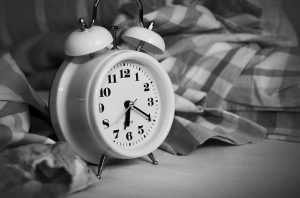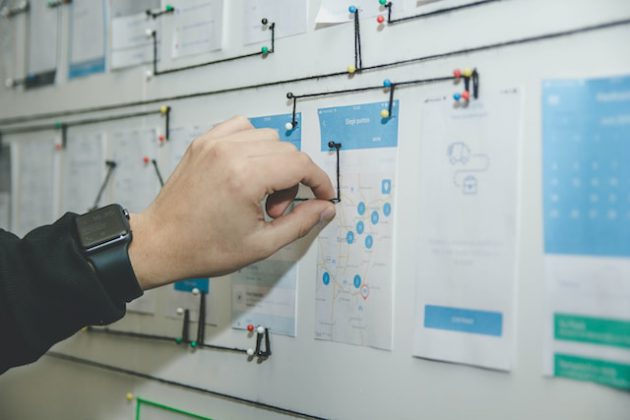With the coronavirus pandemic at the forefront of everyone’s mind, it can be easy to overlook another epidemic plaguing the American workforce: sleep deprivation. According to The National Sleep Foundation, most Americans report being chronically sleep deprived. In addition, This Harvard study on sleep and productivity found that the average American worker loses 11.3 days’ worth of productivity annually as a result of sleep deprivation. How can a mere lack of shut-eye create such drastic consequences? As it turns out, sleep plays a critical role in your wellbeing at work.
Sleep Well, Stay Well
Research conducted at the Hult International Business School indicates that sleep deprivation depresses the immune system’s functioning. This increases our susceptibility to colds and other illnesses that keep individuals from being able to work for extended periods of time. To put this in more specific terms, this study found that individuals who slept less than 7 hours per night were three times more likely to catch a cold than those who slept over 8 hours per night. That means sleeping enough hours regularly is critical to even allowing you to show up to work at all. However much you may get done in a late night at the office, is it worth tripling your chances of missing the next few days entirely? Though it may be challenging, making time for sleep is worth it. And you’ll feel less pressured to work late when you’ve structured your work time more productively, which you can achieve with the strategies in this earlier blog post.
Sleeping Productively
What’s the most productive way to sleep? This may seem like a silly question, but the research actually backs a very simple answer. Sleep more. This study by the American Academy of Sleep Medicine found a 107% reduction in productivity in participants with insomnia as compared to those without, drawing a clear correlation between sleep deprivation and lost productivity. Moreover, in comparison with a control group sleeping 7-8 hours per night, individuals who slept only 5-6 hours experienced 19% more productivity loss, and those who slept even less experienced 29% more. Lack of sleep decreases productivity in measurable ways.
According to the National Sleep Foundation, insufficient sleep decreases workers’ ability to recover from distractions, response time, decision making, and accuracy in simple tasks. Additionally, this article from the Division of Sleep Medicine at Harvard Medical School points out that sleep deprivation compromises your focus, concentration, working memory, and even simple logical reasoning. While all these are important consequences to consider in any workplace, for those in the medical field, factors like accuracy and response time are especially critical. This study found that on-call residents working overnight made 300% more fatal medical errors than those who worked 16-hour shifts. That’s a frightening statistic, especially in light of the pressures currently being placed on medical professionals. Evidently, sleep is of the essence.
Sleep and Work in Pandemic Times
Not only does sleep critically impact productivity in all fields and at all times, it is especially needed as we work from home and shelter in place during coronavirus times. For instance, as I described in this blog post on virtual workplace interactions, our new methods of communication often make it more challenging for us to facilitate friendly and productive interactions with our coworkers. As it turns out, this research indicated that lack of sleep actually increases irritability and damages interpersonal relationships. That means sleeping enough can actually be an intentional strategy to prepare ourselves to better deal with the unique social contexts we encounter. And in fact, that intentionality may be necessary to ensure sufficient sleep. This study found that for individuals who reported experiencing loneliness, not only did their quality of sleep decline but so did their partner’s. This means that as many of us struggle to come to terms with this new reality in which social interactions are so limited, we should be mindful of how that experience may be impacting our sleep, even if indirectly, and how that can then, in turn, impact our ability to work productively in these circumstances.
Investing Sleep Time Wisely
Considering all those studies, it should come as no surprise that sleep habits actually correlate directly with compensation at work. This study found that so-called “morning birds,” whose sleep schedules allow them to feel alert and work productively during the regular business day, tend to earn higher incomes than “night owls,” those who often feel more groggy in the mornings and then work better after regular hours. For this reason, one of the student researchers cited here posits that “sleep is not wasted time–it’s wisely invested time.” This certainly couldn’t be more true than in these times.
Strategizing Sleep
Now that we recognize the need for good sleep and all its consequences, we need some pragmatic tips on catching those z’s. This Forbes article contains a lot of suggestions on how to best set up your environment and daily routine to optimize your sleep.
Regarding the sleep environment, consider the mattress you sleep on first. Sharing a bed can actually decrease sleep quality if your partner’s movements disturb your sleep, so a motion isolating mattress can be a good choice to promote better sleep for couples. Additionally, darkening the room for sleep will promote the production of melatonin, a hormone necessary for a good night’s sleep. Staying off electronic devices before bed can also promote your body’s natural production of melatonin.
Besides arranging the room optimally, consider how you arrange your day too. Another way to facilitate healthy melatonin production at night is to increase exposure to sunlight during the day. Plus, avoiding work-related stress towards the evening allows the mind to relax as you approach bedtime.
The Takeaway
Sleep is essential for productivity at work, and it’s also easily disrupted by a myriad of factors, some of which may be aggravated by the current circumstances. Nevertheless, there are practical ways you can optimize your sleep. Making some small changes in your life to improve your sleep will lead to measured improvements in your work life. Let me know if this information is helpful for you! If I don’t answer right away, it might be because I’m getting in some healthy, productive z’s.





